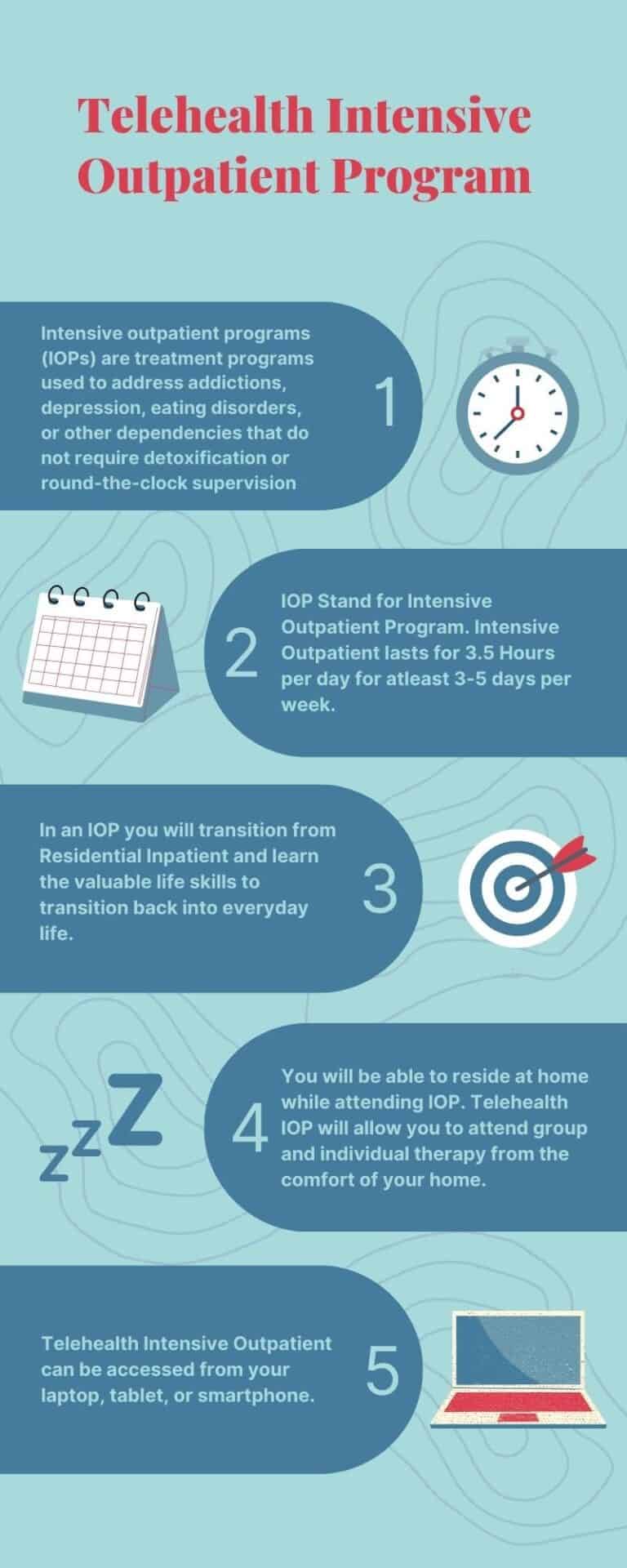Why an Intensive Outpatient Program (IOP) is Essential for Lasting Recovery.
Why an Intensive Outpatient Program (IOP) is Essential for Lasting Recovery.
Blog Article
The Effect of Holistic Therapies on Mind-Body Healing in an Intensive Outpatient Program
In the world of extensive outpatient programs, the unification of all natural treatments has actually triggered substantial passion and discussion amongst specialists in the field of mental health and wellness. The exploration of alternate methods, such as yoga, meditation, acupuncture, and mindfulness techniques, questions regarding their effectiveness in advertising mind-body recovery for individuals going through therapy. As the demand for extensive and integrative treatment expands, comprehending the effect of these all natural treatments within the structured structure of an extensive outpatient program comes to be progressively critical. The potential harmony in between standard healing modalities and all natural practices in cultivating alternative health stays a subject ripe for expedition and analysis.
Integrating Holistic Therapies in IOP
Including holistic therapies right into Extensive Outpatient Programs (IOP) can enhance the overall wellness and therapy end results of individuals seeking psychological wellness assistance. Holistic therapies concentrate on dealing with the entire individual, dealing with not only the signs yet additionally the underlying root causes of mental health and wellness problems. By incorporating practices such as yoga, meditation, art therapy, and acupuncture into IOP settings, clients can experience a much more thorough strategy to their therapy.

Benefits of Yoga and Reflection
By instilling IOP settings with holistic therapies like yoga exercise and reflection, individuals can access a series of advantages that add to their mental and emotional health. Yoga exercise, with its focus on physical postures, breathing strategies, and mindfulness, can assist individuals reduce stress and anxiety, stress and anxiety, and anxiety. The practice of yoga exercise promotes leisure and enhances overall state of mind by launching endorphins, the body's natural feel-good chemicals. In addition, yoga enhances self-awareness and cultivates a sense of internal peace, which can be particularly valuable for individuals undergoing extensive outpatient treatment.

Acupuncture for Mind-Body Healing
Acupuncture, a conventional Chinese medicine practice entailing the insertion of slim needles into specific factors on the body, offers a special technique to mind-body healing by targeting energy circulation and advertising holistic health. This old method is based on the principle of Qi, the body's crucial energy, moving along meridians or pathways. By boosting certain acupoints, acupuncturists aim to restore the equilibrium of Qi, which is believed to be crucial for total health and well-being.
In the context of mind-body recovery, acupuncture has revealed appealing results in lowering anxiety, anxiousness, and depression by managing the body's physical response to these conditions. Research recommends that acupuncture can help release endorphins, the body's all-natural pain relievers, and regulate natural chemicals to enhance state of mind and psychological wellness. Additionally, acupuncture sessions are commonly come with by a sense of leisure and calm, which can add to a more balanced psychological state.
Moreover, acupuncture read the article is increasingly being incorporated right into Western medicine techniques to enhance standard treatments for various psychological health and wellness problems, using a holistic method that thinks about the interconnectedness of the mind and body in advertising recovery and wellness. Intensive Outpatient Program (IOP).
Mindfulness Techniques in Treatment
Increasing on the realm of alternative therapies, mindfulness strategies play an essential duty in treatment by promoting a much deeper connection between the mind and body for general health. In the context of an extensive outpatient program, incorporating mindfulness strategies can assist individuals develop self-awareness, manage feelings, and reduce tension degrees.
Mindfulness methods can also assist in breaking the cycle of negative idea patterns and behaviors that may add to mental health and wellness Get More Information obstacles. By encouraging people to observe their ideas without attachment or judgment, mindfulness fosters a feeling of acceptance and compassion in the direction of oneself (Intensive Outpatient Program (IOP)). This method can cause enhanced psychological resilience, boosted coping mechanisms, and a higher feeling of inner tranquility. Eventually, integrating mindfulness techniques right into therapy strategies can equip people to actively take part in their recovery journey and advertise all natural well-being.

Assessing Alternative Treatments' Effectiveness

Qualitative assessments, on the other hand, involve gathering subjective feedback from individuals regarding their experiences with holistic treatments. This qualitative data can supply useful understandings right into the regarded benefits of these therapies on individuals' total wellness, quality of life, and coping mechanisms. By incorporating quantitative information with qualitative comments, researchers can get an extra alternative understanding of the effectiveness of these treatments in advertising mind-body recovery within an intensive outpatient program. Such assessments are crucial for informing evidence-based practices and optimizing all natural treatment techniques for individuals looking for thorough wellness.
Conclusion
To conclude, the assimilation of alternative treatments such as yoga, reflection, acupuncture, and mindfulness methods in an intensive outpatient program can have a substantial influence on mind-body recovery. These therapies use an even more extensive strategy to treatment by resolving the physical, emotional, and spiritual elements of a person's health - Intensive Outpatient Program (IOP). Examining the efficacy of these holistic interventions is crucial in understanding their prospective advantages in boosting the overall healing process for people in an outpatient setup
Report this page